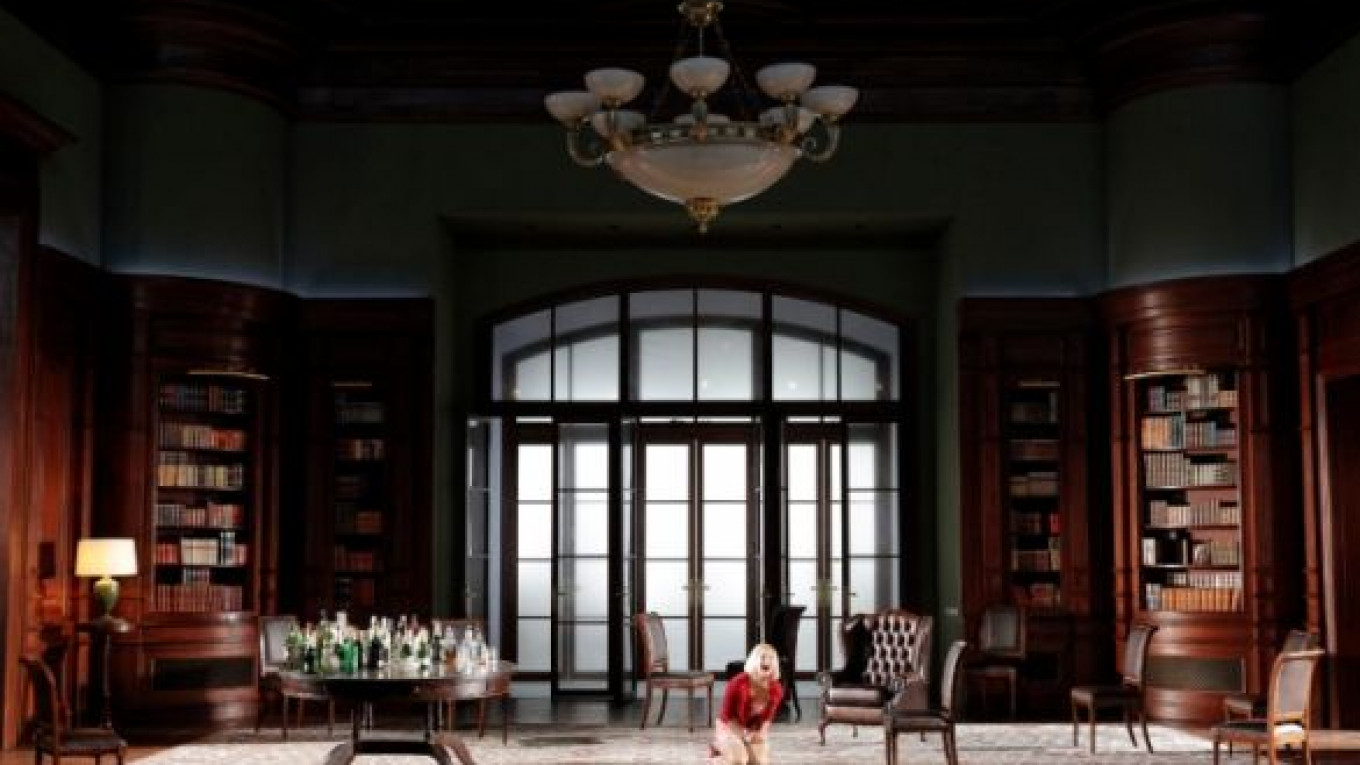Among the most famous and popular European music festivals is the annual program in Aix-en-Provence, near Marseilles, in the South of France. This year it lasted for the whole month of July, with five operas staged in the original festival theater set in the courtyard of the former bishop’s palace, a romantic but daunting venue for stage directors due to its limited technical possibilities, and in the newly built Grand Theatre de Provence, a luxurious and spacious indoor theater located in the dead center of town. The public was also offered numerous free concerts in the courtyards, palaces, museums and churches of the 2,000-year-old city.
To produce these five operas, festival organizers invited famous stage directors and well-known soloists. Their performances were accompanied by such acclaimed orchestras as the London and Paris Symphony orchestras, conducted by world-class maestros Marc Minkowski, Esa-Pekka Salonen and Gianandrea Noseda.
This mixed programming is a point of pride for festival director Bernard Foccroulle, who spoke with The Moscow Times about his vision of a festival he has been running now for seven years following his departure from one of Europe’s most innovative opera houses, the Theatre de la Monnaie in Brussels.
Foccroulle says that the Aix-en-Provence lyrical music festival continues to educate the public and involve more musicians and singers, particularly younger talents.
In the past seven years, Foccroulle has detected a change in public tastes. Festival-goers are now more eager to accept new, often controversial ideas.
In this sense, the staging of Don Giovanni staged by Russian director Dmitry Cherniakov is at the front ranks of provocative productions. Born and educated in Moscow, Cherniakov puts on his performances in a variety of European opera houses where he provokes surprise and criticism. In 2011, his new staging of “Ruslan and Lyudmila” by Glinka for the reopening of the Bolshoi Theater divided the public and the critics.
A similar division took place in Aix-en-Provence in 2010 when Don Giovanni was first shown. Parisian critics stated that they hated it and half of the audience was upset. Now three years later, when the same production has returned to the festival, the reaction is quite positive.
The French newspaper Le Monde even published an article admitting that they had been wrong in their negative criticism of the opera.
While Foccroulle admires Cherniakov’s work, he emphasized that daring stagings are possible only on the condition that the musical quality of the show remains at the highest level, a responsibility that lies with the festival organizers.
This season’s Aix-en-Provence Festival opened with a production of Rigoletto by Robert Carsen, an experienced Canadian director who has staged more than 80 operas around the world. Carsen cleverly used the open theater in the archbishop’s courtyard, turning the duke’s palace into a circus where all the action took place. The conductor was Gianandrea Noseda, who St. Petersburg music lovers know well from his several years working in the Mariinsky Theater. The role of Gilda was beautifully performed by the Russian singer Irina Lungu, the winner of the Yelena Obraztsova vocal competition in St. Petersburg. The role of the court jester was sung by the Georgian bass George Gagnidze, now one of the most sought after performers.
The same stage was also used for Cherniakov’s Don Giovanni, with French conductor Marc Minkowski at the podium. Cherniakov chose to make a virtue out of the restricted possibilities of the stage machinery and put all the action in the drawing room of the Commendatore’s palace, thus contradicting the spatial separation of acts in the libretto by Lorenzo Da Ponte. He replaced space with time separations, stretching the action over several months instead of the 24 hours of the libretto. To underline this fact, he made the theater curtain fall after each scene, causing an interruption in the flow of music and action. Minkowski mentioned to the press that he had never conducted a show where the curtain fell so many times.
The innovations by the director did not stop there: Cherniakov turned the protagonists into members of the same family. Thus, the young peasant girl Zerlina who Giovanni pursues is now said to be a daughter of Donna Anna. In a word, Cherniakov gave the public and the professionals a lot of material for reflection, or outrage.
The different stage directors brought starkly different approaches to their work. Where Cherniakov more or less rewrote the opera libretto, uniting the protagonists by family ties and turning the great seducer into a worn-out, middle-aged, pitiful figure, Robert Carsen’s Rigoletto was loyally devoted to Verdi’s concepts and showed that the focus of the piece was the father-daughter relationship, beautifully interpreted by the singers.
Cherniakov’s vision, however radical, seems to have seduced the public: Foccroulle hinted that the Russian director will return to Aix in 2014. “The program for the next year is already set. Hopefully, Dmitry Cherniakov will return with a new project. We are still keeping it secret.”
Contact the author at [email protected]
A Message from The Moscow Times:
Dear readers,
We are facing unprecedented challenges. Russia's Prosecutor General's Office has designated The Moscow Times as an "undesirable" organization, criminalizing our work and putting our staff at risk of prosecution. This follows our earlier unjust labeling as a "foreign agent."
These actions are direct attempts to silence independent journalism in Russia. The authorities claim our work "discredits the decisions of the Russian leadership." We see things differently: we strive to provide accurate, unbiased reporting on Russia.
We, the journalists of The Moscow Times, refuse to be silenced. But to continue our work, we need your help.
Your support, no matter how small, makes a world of difference. If you can, please support us monthly starting from just $2. It's quick to set up, and every contribution makes a significant impact.
By supporting The Moscow Times, you're defending open, independent journalism in the face of repression. Thank you for standing with us.
Remind me later.






